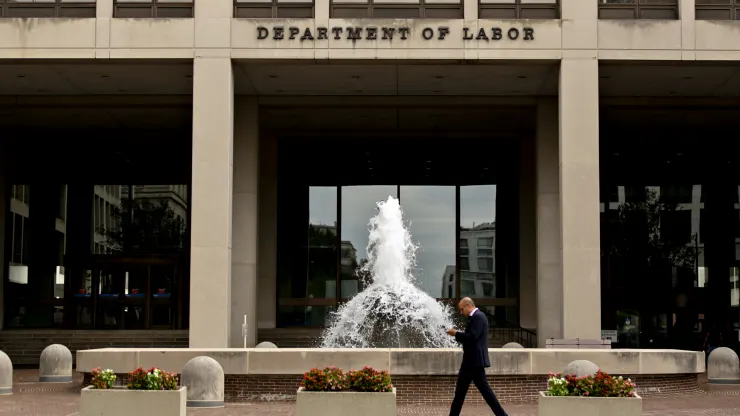
New protections for households that roll money from 401(k) plans to individual retirement accounts may take effect as soon as 2024, due to a new U.S. Department of Labor initiative announced last week.
The Labor Department proposed a rule that aims to ensure retirement savers get financial advice that’s in their best interests.
The proposal would most impact rollovers, a common move for new retirees, said Fred Reish, a retirement expert and partner at law firm Faegre Drinker Biddle & Reath.
“It’s the single largest transaction” many people make in their life, often involving $250,000 to $500,000 or more, Reish said.
Why Labor Department wants to raise protections
In 2020, about 5.7 million Americans rolled a total $618 billion into IRAs, according to most recent IRS data. That’s more than double the $300 billion rolled over a decade earlier.
IRAs held about $11.5 trillion in 2022, almost double the $6.6 trillion in 401(k) plans, according to the Investment Company Institute. The bulk of those IRA assets come from rollovers.
More than 4 in 10 American households — about 55 million of them — owned IRAs in 2022, ICI said.
Here’s the problem, in the eyes of the Labor Department: 401(k) investors have certain protections that don’t generally extend to IRA investments or the advice to move money to IRAs.
All companies that sponsor a 401(k) plan owe a “fiduciary” duty to their workers, as codified by the Employee Retirement Income Security Act of 1974.
That means they have a legal responsibility to act in workers’ best interests when it comes to things like picking the investment funds for their company 401(k) and ensuring costs are reasonable.
“ERISA fiduciary duties are the highest fiduciary duties under U.S. law,” said Josh Lichtenstein, partner at law firm Ropes & Gray.
Current law exempts most rollover advice from these protections, legal experts said. For example, there’s a waiver for brokers who make a one-time recommendation to a 401(k) investor to roll money to an IRA and don’t maintain a regular relationship thereafter.
Investors also often pay higher fees in IRAs relative to 401(k) plans, according to a recent study by The Pew Charitable Trusts. People who rolled money to an IRA in 2018 will lose $45.5 billion in aggregate savings due to fees and lost earnings over 25 years, Pew found.
Why the new rule would be a ‘sea change’
The Labor Department rule, if enacted, would crack down on financial conflicts of interest that may exist when brokers, insurance agents and others recommend that consumers roll their money to an IRA.
That advice typically generates compensation like a commission for the broker or agent, and the Labor Department is concerned those incentives may bias recommendations for certain investments that pay them more but aren’t in an investor’s best interests.
For example, the White House Council of Economic Advisers estimates that consumers lose up to $5 billion a year just due to conflicted advice to roll money to indexed annuities, a type of insurance product.
The Department’s proposed rule would expand ERISA’s fiduciary protections to cover most rollover solicitations, experts said.
It’s “a sea change,” said David Levine, principal at Groom Law Group.
“They’re trying to fill what they see as gaps” in the rules, he added.
He expects a final rule to be issued in the spring and take effect in early summer 2024.
Many rollover transactions are already overseen by other regulatory bodies like the Securities and Exchange Commission and National Association of Insurance Commissioners, experts said.
But the Labor Department standard being proposed is more stringent than those existing regimes, Lichtenstein said.
Critics of the Labor Department rule think the existing measures provide adequate protections for retirement savers, while proponents of the rule argue otherwise.
The Obama administration also tried to raise protections for retirement savers, including those for rollovers, but its rule was killed in court in 2018.
Before that court ruling, the Obama-era regulation resulted in fewer choices for retirement savers, such as fewer commissioned brokers opting to give retirement advice, Lichtenstein said. He would expect a similar dynamic with the current initiative.
“I think it’s hard to argue there’s no increase in investor protection,” Andrew Oringer, partner at The Wagner Law Group, said of the proposal. “As to whether the Department has gone too far or not far enough, I don’t know.”




























